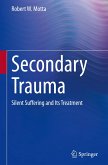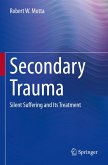This book aims to reconcile a disconnect in the field of trauma psychology: On one hand, decades of accumulated evidence support the safety and efficacy of prolonged exposure therapy (PE) for posttraumatic stress disorder (PTSD). On the other hand, many individuals suffering from PTSD cannot access PE. Even among individuals who begin PE, many experience challenges in completing a full course of treatment. Further, PTSD is a complex and heterogenous disorder; not all individuals who complete PE experience a meaningful benefit. PE is an evidence-based psychological treatment that helps individuals approach situations and memories related to their trauma so that they learn to think differently about the trauma and no longer experience intense distress when confronted with trauma reminders. This book is designed for clinicians and researchers who share the goal of increasing the reach and impact of evidence-based treatment for individuals with PTSD. Each chapter synthesizes the latest research findings and provides clear clinical guidance to inform adaptations to improve access, engagement, and clinical outcomes for PE.
Obtaining the best outcomes with prolonged exposure requires not only trained and skilled clinicians-it requires clinicians who have the ability to adapt, enhance, and tailor it for individual patients and settings. This should be a required textbook for all students and trainees in the area of psychological trauma.
Alan L. Peterson, PhD, ABPP
The first book of this type, the authors have provided valuable new information and summarized succinctly the academic literature that is the underpinning of the success of this approach to psychological care. It is both a comprehensive and essential book for all those interested in treating and studying trauma survivors.
Terry Keane, PhD
This book is... timely, including telemental health, intensive delivery formats, digital interventions, and virtual reality. Clinicians and researchers will find it invaluable.
Barbara Olasov Rothbaum, PhD, ABPP
Obtaining the best outcomes with prolonged exposure requires not only trained and skilled clinicians-it requires clinicians who have the ability to adapt, enhance, and tailor it for individual patients and settings. This should be a required textbook for all students and trainees in the area of psychological trauma.
Alan L. Peterson, PhD, ABPP
The first book of this type, the authors have provided valuable new information and summarized succinctly the academic literature that is the underpinning of the success of this approach to psychological care. It is both a comprehensive and essential book for all those interested in treating and studying trauma survivors.
Terry Keane, PhD
This book is... timely, including telemental health, intensive delivery formats, digital interventions, and virtual reality. Clinicians and researchers will find it invaluable.
Barbara Olasov Rothbaum, PhD, ABPP








